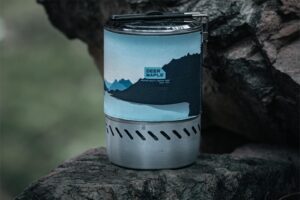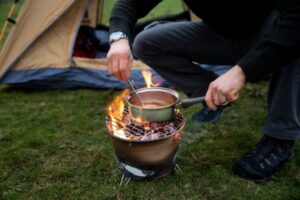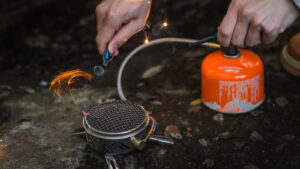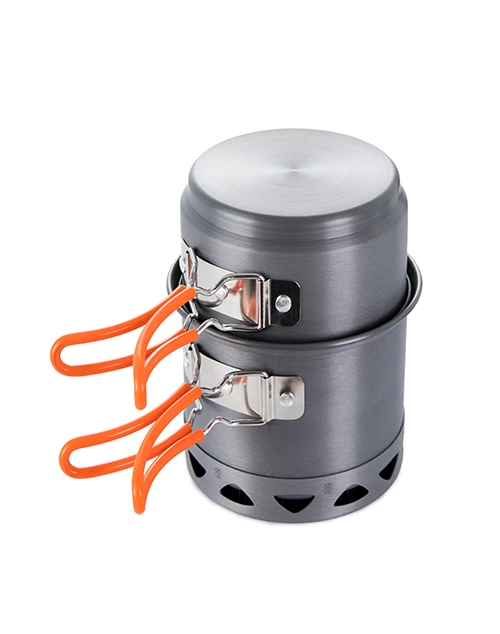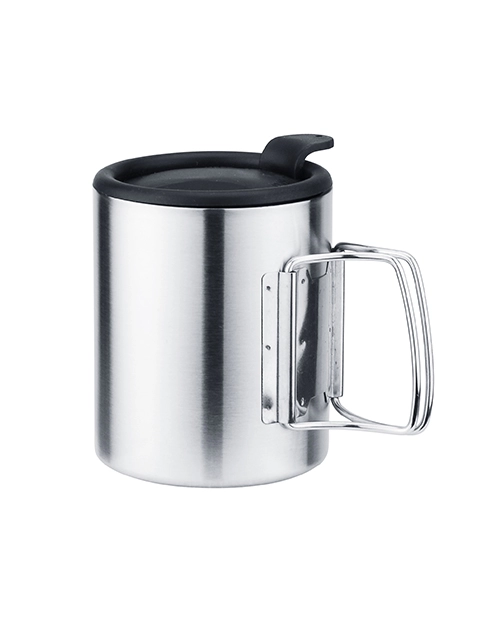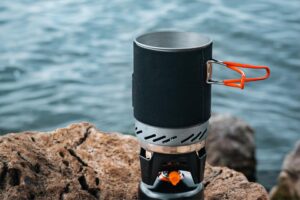
Tips for Planning a Camping Trip for Family
1. Define Your Camping Style
Choosing the right camping style sets the tone for your entire trip. Consider the level of adventure and comfort your family desires. Are you drawn to the rugged simplicity of backpacking, where you carry everything on your back and hike into remote destinations? Or do you prefer the convenience of car camping, where you drive to a designated campsite with amenities like toilets and picnic tables? For those seeking a tent-free experience, RV camping offers comfort and convenience on the road. Discuss your preferences as a family and select a camping style that aligns with your interests and comfort levels.
2. Secure Your Campsite
Once you’ve determined your camping style, it’s time to secure your campsite. Developed campgrounds, especially those in popular destinations or national parks, often require reservations well in advance. Keep considering the following factors:
- Distance Matters:Gauge your little explorers’ tolerance. Start close to home with car camping for first-timers. Work up to scenic destinations when legs (and confidence) grow.
- Home Sweet Tent (or RV):Decide your sleeping quarters. Tents offer budget-friendly, stargazing fun. RVs provide cozy comforts and home-away-from-home ease.
- Amenities Check: Research campgrounds! Look for kid-friendly features like playgrounds, swimming areas, or nature programs. Flush toilets and hot showers are bonus points for picky princesses (and weary parents).
Research potential campsites online and book your spot early to ensure availability, particularly during peak seasons. Consider factors such as campsite size, proximity to amenities, and access to recreational activities when making your reservation. Planning allows you to secure the ideal campsite for your family’s needs and preferences.
3. Explore Your Destination
Before embarking on your camping adventure, take the time to explore your destination and familiarize yourself with the surrounding area. Research nearby attractions, hiking trails, and points of interest to incorporate into your itinerary. Consider the local climate and terrain when packing clothing and gear, and be aware of any wildlife or environmental factors you may encounter. Understanding your destination allows you to plan activities and pack accordingly, ensuring a safe and enjoyable experience for your family.
4. Plan Your Family Meals
Meal planning is an essential aspect of any camping trip, ensuring that your family stays nourished and energized throughout your outdoor adventure. For backpacking trips, prioritize lightweight, non-perishable foods that require minimal preparation. Consider options such as dehydrated meals, trail mixes, and energy bars to fuel your adventures on the trail. For car camping or RV trips, take advantage of your vehicle’s storage capacity to bring fresh ingredients and cooking equipment for more elaborate meals. Plan your menus, considering dietary preferences and any food allergies within your family. With careful planning, mealtime becomes a highlight of your camping experience, fostering connection and shared enjoyment around the campfire.
5. Prepare for All Weather Conditions
Mother Nature is unpredictable, so it’s essential to prepare for a variety of weather conditions during your camping trip. Pack appropriate clothing layers to accommodate changing temperatures, including waterproof jackets, insulated layers, and moisture-wicking fabrics. Bring along essential gear such as tarps and extra blankets to provide shelter and warmth in inclement weather. Consider investing in quality footwear and rain gear to keep your family comfortable and dry during outdoor activities. By planning for all weather scenarios, you can enjoy your camping experience regardless of what nature throws your way.
6. Test Your Gear
A few weeks before your camping trip, conduct a thorough gear check to ensure everything is in working order. Set up your tent in the backyard and inspect for any tears or damage to seams and zippers. Inflate sleeping pads and test camping stoves to verify functionality and safety. Check headlamps, lanterns, and batteries to ensure they’re fully charged and operational. Review your first aid kit and replenish any supplies that are low or expired. Testing your gear in advance allows you to address any issues and familiarize yourself with equipment operation, ensuring a smooth and stress-free camping experience.
7. Embracing the Unexpected: Remember, It’s an Adventure!
- Flexibility is Key:Go with the flow! Let loose schedules and embrace spontaneous moments. A missed sunset hike might lead to impromptu stargazing or campfire stories shared under the Milky Way.
- Nature’s Classroom:Teach your kids about respecting the environment. Leave no trace, collect natural treasures, and appreciate the wonders of the wild.
- Memories, Not Mishaps:Laugh off the inevitable snags. A burnt marshmallow becomes a badge of honor; a lost sock is a hilarious anecdote. Cherish your joy of spending time together and making timeless recollections.
8. Create a Packing List: Gearing Up for the Great Outdoors
Compile a comprehensive packing list to ensure you have all the essentials for your family camping trip. Include categories such as shelter and bedding, clothing and footwear, cooking and food supplies, hygiene and toiletries, and recreation and entertainment.
- Shelter from the Storm: Ensure a weatherproof haven. Choose tents with rainflies and durable sleeping bags for cozy nights, even under starry skies.
- Fueling the Tribe:Pack kid-friendly meals that are easy to cook over a campfire or camp stove. Don’t forget snacks and plenty of water to keep tiny explorers hydrated.
- Creature Comforts: Pack flashlights, headlamps, and a first-aid kit for everyday bumps and bruises. Don’t forget games, books, and toys for downtime entertainment.
Tailor your packing list to accommodate the specific needs of your family, including infants, children, and pets. Check off items as you pack to ensure nothing is overlooked, and review your list before departing to confirm that all essentials are accounted for. By staying organized and prepared, you can enjoy your camping trip with peace of mind and confidence in your provisions.
Bonus Tip
Download camping apps with interactive maps, campsite reviews, and kid-friendly activities. Let technology enhance your adventure, not define it.
FAQs
How do I plan a camping trip with kids?
- Start close to home: Choose a car-camping destination for less travel stress.
- Pick kid-friendly campgrounds: Look for amenities like playgrounds, pools, or nature programs.
- Get them involved: Let them choose activities like ranger talks, hikes, or campfire singalongs.
- Pack for rainy days: Bring board games, cards, and books for indoor fun.
- Embrace flexibility: Go with the flow and enjoy unplanned moments.
How far in advance should you plan a camping trip?
- Popular campgrounds: Make reservations 6-12 months in advance, especially during peak season.
- Remote locations: research permit requirements and plan well ahead of time.
- Last-minute getaways: Check for open campsites the week before your trip for spontaneous adventures.
- Flexible trips: Leave room for adjustments based on weather and campsite availability.
- Plan activities ahead: Research local hikes, events, or attractions your family will enjoy.
What do you need for camping with a family?
- Shelter: tent, RV, or cabin, depending on your comfort level and preferences.
- Sleeping gear: sleeping bags, pillows, and mats for everyone.
- Cooking supplies: camp stove, pots, pans, utensils, and a cooler with ice.
- Food and drinks: kid-friendly meals, snacks, and plenty of water.
- Clothing: layers for changing weather, sturdy shoes, and rain gear.
- Headlamps or flashlights: for navigating in the dark and nighttime adventures.
- First-aid kit: Be prepared for minor cuts, scrapes, and insect bites.
- Entertainment: books, games, cards, toys, and musical instruments for downtime fun.
Remember, the most important ingredient for a successful family camping trip is a sense of adventure and a willingness to embrace the great outdoors together!
ODM service
Looking for reliable wholesale outdoor equipment? At Deermaple, we specialize in ODM service, offering high-quality and innovative cooking gear tailored to your needs.
If you are interested in outdoor gear wholesale, please contact us.

